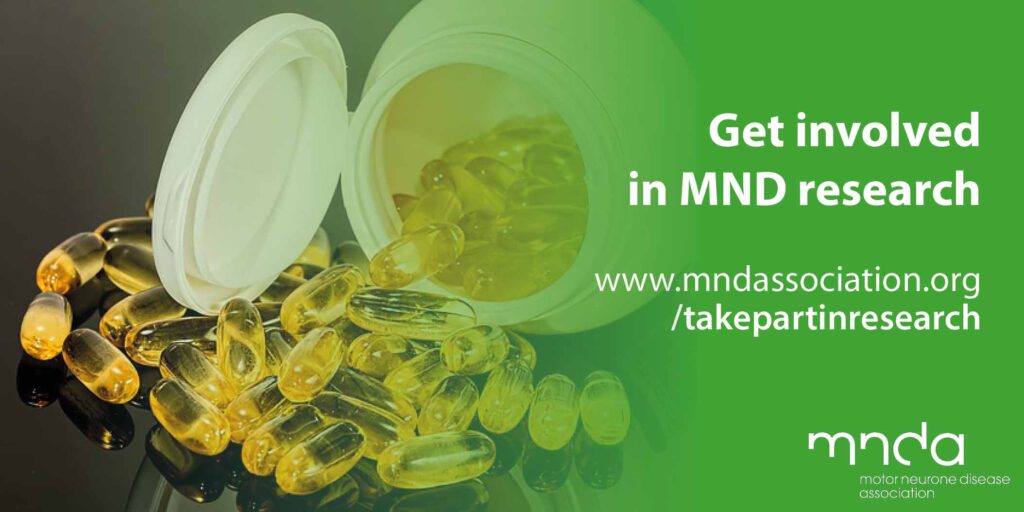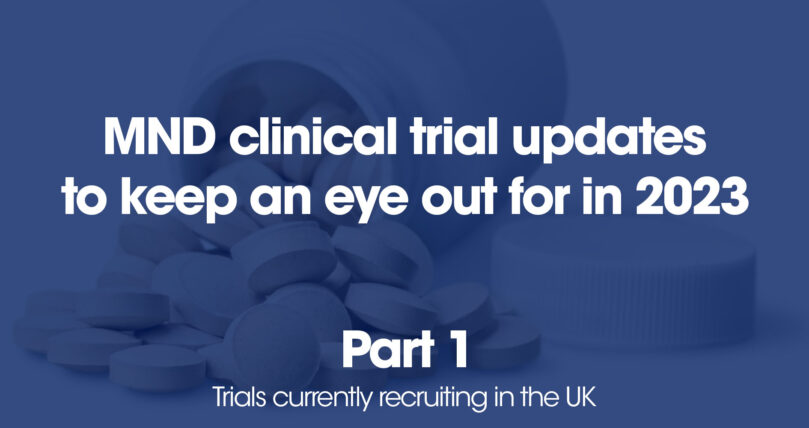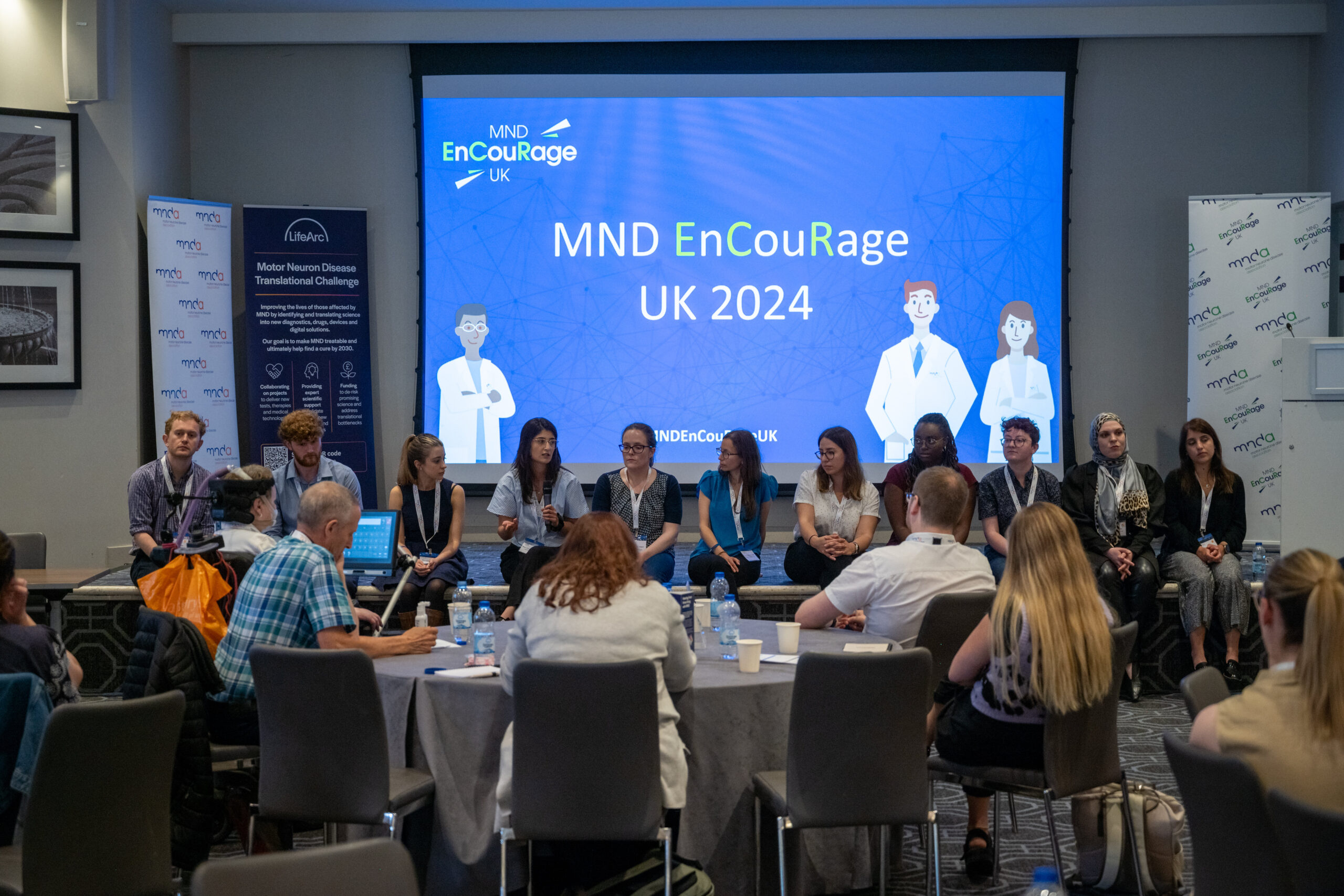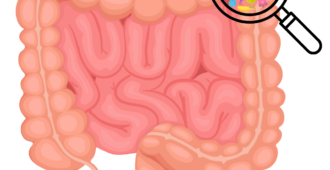Last year was a really exciting year for MND clinical trials, with more trials recruiting in the UK than ever before, some promising results being released, and some drugs being approved by certain regulatory authorities. We hope that the momentum will continue this year and want to highlight just some of the updates we are expecting from clinical trials throughout 2023.
Part 1 of this two part series highlights clinical trials that are currently recruiting in the UK.
Tofersen (ATLAS)
The ATLAS trial is testing a compound called Tofersen in people who have a mutation in the SOD1 gene but aren’t yet showing any symptoms of MND (pre-symptomatic). Tofersen is an antisense oligonucleotide which targets the genetic instructions for the faulty SOD1 protein and aims to reduce the amount of this disease-causing protein being produced. One of the aims of the ATLAS trial is to investigate whether treatment with Tofersen in the pre-symptomatic stage of the disease can delay the onset of symptoms. It will also be assessing whether pre-symptomatic treatment with this gene therapy can slow progression of the disease when symptoms do develop. You can find out more about the trial here.
RELATED TOPIC
Blog | 06 January 2023 | Eleanor Green
Can signs of MND be detected before symptoms appear?
MND-SMART
MND-SMART, the UK’s first platform trial, is a long-term study that will run continuously. Platform trials are designed to test more than one treatment at a time and are highly adaptive. This means that researchers can change the drugs being tested throughout the trial, allowing new drugs to be added and ones that are found to have no benefit to be quickly removed. MND-SMART is currently testing two drugs called Memantine and Trazodone, which are already known to be safe and effective for use in other conditions, but they are now being tested to see if they could be beneficial for people with MND. This is still recruiting at several locations across the UK and more information can be found here.
Reldesemtiv (COURAGE-ALS)
COURAGE-ALS is a trial of a drug called Reldesemtiv, which is designed to help to activate muscles and increase their contraction. The trial aims to determine whether treatment with Reldesemtiv can slow muscle weakness and improve quality of life for people with MND. A phase 2 trial showed that Reldesemtiv may slow the decline in respiratory function and muscle strength in people with the disease and this phase 3 trial aims to build on these findings. You can find out more about COURAGE-ALS and sites recruiting in the UK here. Update 31/03/2023: this trial has now ended.

SAR443820 (HIMALAYA)
The HIMALAYA trial is evaluating the safety and benefit of a compound called SAR443820 in those with MND. The drug targets and reduces the activity of an enzyme known as RIPK1, which is thought to be involved in abnormal immune system responses in MND. It is hoped that reducing the action of RIPK1 could help to slow the progression of the disease. The phase 2 HIMALAYA trial aims to assess the safety and effectiveness of the new drug in people with MND. More information about this trial can be viewed here.
Triumeq (LIGHTHOUSE II)
LIGHTHOUSE II is a trial of an existing treatment called Triumeq. Triumeq is currently licenced to treat HIV but previous research has shown that it might be beneficial for some forms of MND. It is thought that ancient viruses may have left their genetic material in our DNA during evolution, and that this material may become active again in some people. It is believed that this reactivation could contribute to the development of MND. Triumeq is made up of a combination of three antiviral drugs which block the action of an enzyme called integrase. If this enzyme doesn’t function, the virus can’t make more copies of itself and the amount of activated virus in the body is reduced. The LIGHTHOUSE II trial, partly funded by the MND Association, aims to build on the results of the phase 2 trial and test Triumeq in a larger group of people with MND. You can find out more about this trial here.
WVE-004 (FOCUS-C9)
The FOCUS-C9 trial is a phase1/2 trial of a gene therapy called WVE-004 which is designed to treat MND caused by mutations in the C9orf72 gene, the most common genetic cause of MND. WVE-004 is an antisense oligonucleotide which targets and blocks the action of the faulty gene instructions for the C9orf72 protein. This means that the faulty instructions are destroyed and the amount of faulty C9orf72 protein is reduced, while healthy C9orf72 protein can still be made. The aim of the FOCUS-C9 trial is to test the safety and tolerability of WVE-004 at a range of different doses. The trial is releasing top-line results throughout and findings on the effect of WVE-004 on levels of a biomarker called Poly(GP) have already been revealed. We are expecting further results to be released over the course of the year. You can find out more about the results released so far here. Update 24/02/2023: this trial has now closed to recruitment.
We know keeping up to date with clinical trial news is very important to the MND community so we endeavour to share the latest updates through our twitter account, research monthly newsletter and latest news page.
Clinical trials wouldn’t be possible without the dedication, generosity and commitment of researchers, health care professionals and the MND community. Thank you to everyone who is involved in these trials and contributing towards the growing clinical trial landscape testing new potential treatments for MND.
*The information in this blog was correct at the time of publication.







